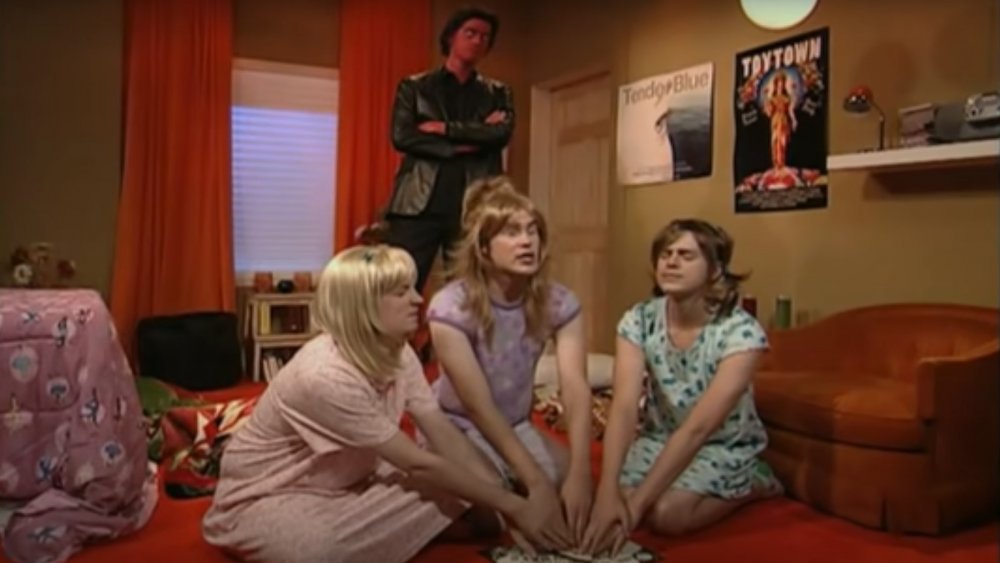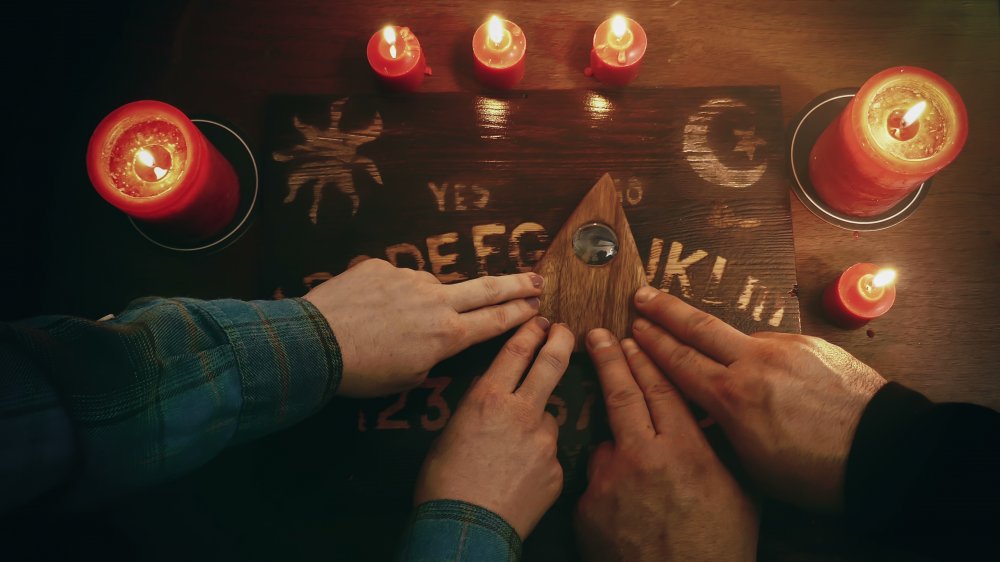The Untold Truth Of Zozo, The Ouija Board Demon
The first time anyone mentioned the name Zozo was in Le Dictionnaire Infernal, a 19th century spotter's guide to the gruesome and unholy. In the context of the book, demons are presented as a very real threat — demons, but not Zozo. "Zozo" is the name that a habitual liar gives while pretending to be possessed, a grift that she runs a couple of times before getting thrown in jail for being a pant-on-fire drama queen.
And that's the problem with talking about the history of Zozo. It all falls apart up front. Pointing to Le Dictionnaire Infernal as proof that he's been around for centuries is like citing Fight Club as proof that Tyler Durden exists. Even the shaky source material doesn't present him as being super duper real.
Even so, starting around 2009, a new urban legend started making the rounds thanks to an Oklahoma man named Darren Evans. Evans, via a post to the website True Ghost Tales, warned of the dangers of Ouija board usage, claiming to have been harassed by the demon Zozo, a nefarious antagonist from the dawn of time who used Ouija boards (trademark Hasbro) as a portal to our world. Evans' claims ran the supernatural gamut: Zozo made his girlfriend disinterested in him. Zozo, somehow, was responsible for his 1 year old daughter being left alone in the bathtub. Zozo came up with a name for Evans' rock band that Evans later realized "wasn't cool AT ALL!"
The legend of Zozo
Nobody likes being tortured by an agent of the unholy, and Evans claims to have had a particularly rough go of things with Zozo, who he says went on to possess him, "cuss" him in "Latin or Hebrew," and poison his relationships with a bunch of cool ladies. Luckily, Evans managed to make lemonade by releasing a book and selling the movie rights, even making a cameo appearance in the 2012 film adaptation I Am Zozo.
Thrillist points out that Evans' story has varied significantly over time. In some accounts, he first encountered the demon after finding a Ouija board with the name "Zozo" engraved on the back. Other times it was written on the front of the board where "Ouija" would normally be. In any case, his tale of demonic woe has garnered the attention of internet message boards and low-budget Ghost Hunters knockoffs for more than a decade.
On a side note, Ouija boards were first patented by a novelty toy company in the late 19th century. According to the Smithsonian, this breakthrough in communication with the unseen world came at a time suspiciously adjacent to America's post-Civil War fascination with spiritualism, when hucksters fleeced the likes of Arthur Conan Doyle and Mary Todd Lincoln with the promise of seeing their lost loved ones again. Ouija boards have since been pointed to as a prime example of the brain's capacity to enter a dissociative state and make unconscious muscle movements, the same way it might during automatic writing or "table movement" parties.
Or maybe that's just what Zozo wants you to think.

